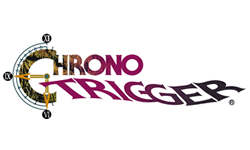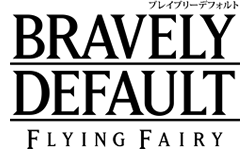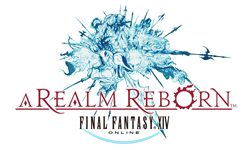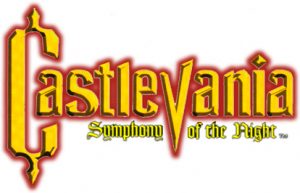RPG Music That Moved Us
We often talk about graphics and story when we talk about our favourite role-playing games. It has to look good, but also has to tell a grand tale. But there is something which is even more important. Something that enriches these epic stories. That thing is music. Because without it, what would guide us through the personal story of the main character? What would make us feel alive in our battles against the end of the world? What would sadden us when the story takes a dark turn?
In this first article in a planned recurring feature, we share some of our memories. Our memories of the musical pieces that really moved us. Music that stayed with us and became part of us.
Erik van Asselt
Let’s go back in time. It is right before the start of a new millenium. The time of the Super Nintendo is long gone and I never owned one myself. So imagine my joy when I was finaly able to get a hold of one at a second-hand store. This is how, at the end of my teenage years, I got exposed to some of the greatest RPGs of the 16-bit era, such as Final Fantasy VI. But there was one game that took a special place among them: Chrono Trigger. It was also during this time that my taste in music started to develop. At first I tried a few old CDs from my dad’s collection, but it never felt like it was my music. So I searched for a sound that was more me. What about the soundtrack of my favourite game?
What I found was something special. Something that changed my taste in music completely. I ended up with an album called “Brink of Time”, thinking that it was the soundtrack, especially after seeing that the first track was called “Chrono Trigger”. I clicked on play and what I heard was not what I expected. An upbeat rhythm filled my ears, a saxophone solo folllowed suit, and the voice of a man told me that “It’s the beginning of a new and excitingly different story”. It still sounded like the music I loved, but it was different. This was strange. This was… jazz.
And for those who don’t know, as I obviously didn’t, “Brink of Time” is a soundtrack containing jazz rearrangements of the music from Chrono Trigger, composed by Yasunori Mitsuda. The composer of Chrono Trigger made a jazz album and I loved it.
To this day, these are the arrangements I listen to when I need to relax. It marked a point in my life when I was getting older. No longer a teenager, but becoming an adult. As I am writing this, I can see the CD on my desk. Ready for another spin. Thinking back to that first track, I guess the voice was right. It truly is the beginning of a new and excitingly different story.
Lucas Tahiruzzaman Syed
I didn’t really follow the mobile market until one day I saw a piece online praising Nintendo’s new mobile IP, Dragalia Lost. Out of curiosity I downloaded it. I had only one prior experience with gacha games (Final Fantasy Brave Exvius, which I found engrossing for a while until I understood the loop, from which I fled immediately) and was more than a little wary. The art style seemed generic at first glance, and I almost gave up after a lengthy initial data download.
But once I was dropped into the main menu, my ears were assaulted by an obviously contemporary, noisy, effervescent vocal track that a friend later described astutely as “Passion Pit meets J-Pop”. I completely stopped interacting with the app just to listen; it was glorious. Not in a million years would I ever think to pair this kind of music with a generic anime swords-and-sorcery aesthetic. I suspected that it might be a one-off sort of implementation for the main menu screen, but was further delighted by the variety of relentlessly catchy tunes that accompanied every separate menu screen. Doing a random draw? An aggressive bop with cheerleader-y hand claps (think Avril Lavigne’s “Girlfriend”) celebrates the summon. Choosing your next mission? A coy and catchy staccato riff keeps your head bopping as you browse the map. Most importantly, the character models, when visible in the hub menus, all move to the beat with this stupid grin on their faces. It’s one of the most charming details I’ve ever seen. The whole experience inevitably reminded me of the original Robot Unicorn Attack’s shameless use of Erasure’s “Always”, and that got me wondering…
With a brief bit of internet search, I discovered that they were all apparently licensed tracks by Daoko, many of which have now made their way onto various playlists in my day-to-day. And while I usually favor orchestral scores — Hitoshi Sakimoto being among my all-time favorite composers in any aspect of music — I’ve since mused a lot on the potential for licensed music in games, or even having major recording artists do full scores, vocals and all. Though perhaps with a bit more of a thorough implementation than what we got with Final Fantasy XV’s tapping of Florence and the Machine, or Final Fantasy XIII’s inexplicable deployment of a Leona Lewis power ballad.
Not that I’d trade the astounding NieR soundtracks for anything, but… CHVRCHES with a third Nier, anyone?
Cassandra Ramos
Bravely Default purposefully emulates early Final Fantasy games. Appropriately, its soundtrack, composed by Sound Horizon frontman Revo, fits right with Japanese RPGs both old and new. There’s nothing unique about the music but I fell that it is RPG music refined to its absolute best. Whether battle themes, character themes, town themes, sad moments, or silly moments, and so forth, each track is fitting and noteworthy, even if some pieces aren’t quite as strong as others.
Right from the start when I turned the game on and heard the main theme “Overture to Hope”, I knew that it would be something special. The music starts with a pretty harp that is soon joined by the rest of the orchestra. It swells to a grand and triumphant melody that brings to mind a great adventure. As I played through the game, “Overture to Hope” fit even more, as the four warriors of light teamed up, traveled across Luxendarc, beat back the Duchy of Eternia, and learned more about the true enemy.
There are so many wonderful tracks that follow. The town themes suit their locales to a T, with a particular mention to “Land of Radiant Flowers”, Florem’s theme. The character themes are not only fantastic, they fit the party members so well, with their focus on a signature style: Tiz’s rustic woodwinds and bagpipes, Agnès’s elegant violin, Edea’s jazzy saxophone, and Ringabel’s sultry accordion. “The Gongs of Battle” may be the random encounter theme, but it’s so invigorating that it could pass for boss fight music in any other game. The actual boss battle themes are exquisite, especially the penultimate boss theme “Wicked Flight”. The final boss theme is nothing to sneeze at, either, and I especially love how it incorporates the characters’ themes.
I do, however, want to pay special attention to the gorgeous ending song, “Ballad to Hope”. The song starts out calm and soothing, excellently mixing in melodies from other tracks. It picks up in the last quarter of the song, rising to a crescendo as the singers repeat “Bravely Default”. The music and the singers are at their most energetic and triumphant point, and I can’t help but try to sing along. “Ballad to Hope” fantastically encapsulates Bravely Default as a whole, as well as my feelings for it. It reminds me of why I love this game. Bravely Default has its ups and downs, but it just wouldn’t be the same without this wonderful soundtrack.
Shannon Harle
Typically, you wouldn’t think of an MMO as a place for great music. Most of the time, there’s either no music at all or it’s simply ambient, something that plays when you enter a zone or occasionally during travel. But in Final Fantasy XIV Online, the music is one of the main draws of the entire game. Even with its fantastic story in later expansions, simple yet engaging gameplay, and colorful locales, none of them would have the same impact if it wasn’t for the musical work of Masayoshi Soken, Nobuo Uematsu, and the rest of the team.
The first iteration of the game (dubbed “1.0” by the developers and community) had a complete soundtrack by Uematsu, and it definitely showcases the style he’s known for in more recent games like Lost Odyssey and Terra Battle, one with more of a rock or prog rock influence. A good number of the tracks he composed for 1.0 still exist in some way in the current form of the game, mostly as dungeon themes. But there is one theme that still touches me in a very deep emotional way that he composed for the original game and that is woven throughout the A Realm Reborn‘s storyline: “Answers”.
The haunting melody and lyrics of “Answers”, sung by Susan Calloway, connects with me on multiple levels, both historically and emotionally. I was an alpha and beta tester for the original Final Fantasy XIV, and I played it on-and-off again during its run. “Answers” was the theme that played when the game was going out, when the lesser moon Dalamud hung like a red specter in the sky, and it punctuated the sheer destruction rained down on the realm by Bahamut during the CG cutscene that signaled the end of service for the game. It was, quite literally, the end of an era, and one that hit hard for me. A few years later, a good friend of mine, who also played the game, was sadly found dead in his apartment of kidney failure, and I held a vigil for him in the game. The lyrics — “Our souls have been torn/and our bodies forsaken/Still deaf to our cries/Lost in hope we lie defeated” — continued to play in my head over and over during that somber time. He was taken from us too soon, his soul torn and body forsaken. It was quite a few years before I could sing to “Answers” or even listen to it without tearing up thinking about him.
Then comes in Masayoshi Soken along with the raid development team of A Realm Reborn with the Binding Coil of Bahamut, more specifically the Final Coil. I did serious progression raiding during Final Coil, the final instance of which culminates in a climactic battle with an avatar of Bahamut himself. During the fight, what should start playing but the song that signaled his arrival to the realm of Eorzea, “Answers”. At the climax of the song, in the final phase of the fight, Bahamut uses his ultimate attack, Akh Morn, on whoever happens to have the most enmity at the time. And this attack is perfectly timed with the song’s cries: “Witness/Suffer/Borrow/Reason”. It’s both an incredibly moving and incredibly frightening moment in one of the best fights in A Realm Reborn.
There are plenty of other fantastic songs that I completely adore out of the Final Fantasy XIV Online soundtrack — “Rise”, “Locus”, “Exponential Entropy”, and “Painted Foothills” to name a few — but there are extremely few songs in any video game that have touched me as deeply and as intensely as “Answers”. It’s a thoroughly wonderful introduction to a game and to a soundtrack that continues to innovate, entertain, and break records.
Joe Hanley
When consoles transitioned from the 16-bit to the 32-bit era, I think the increase in sound and music quality was just as important as the visual improvements. The disc-based consoles, like the Sony PlayStation and the Sega Saturn, had better sound cards than the Super Nintendo or the Sega Genesis, so they were able to produce better sounding music at a much higher bit rate. One RPG soundtrack that particularly stands out for me is Castlevania: Symphony of the Night. It was developed and published by Konami, and released on the Sony PlayStation in 1997, although I didn’t play it until 2007 when it became available as a digital download on PS3. Even playing it ten years after release, I was struck by how awesome it sounded, I recently played it again as part of Castlevania Requiem on PS4 and it sounded even better, partly because I have a much better sound system now.
The composer, Michiru Yamane, worked for Konami from 1988 to 2008. She also composed the soundtracks for other Castlevania games, like Bloodlines, Aria of Sorrow, and Order of Ecclesia. I’m a musician, I studied music theory, and I think her compositions are very impressive. The thirty four tracks of this “Gothic Rock” soundtrack clock in at about sixty-nine minutes. The mix of classical, rock, and jazz music is used to great effect to give each area of Dracula’s castle a distinctive sound and feel. The combination of church organ, electric guitar, and rock drum kit works very well, creating a template that the series would continue to follow. The first song, appropriately titled “Prologue”, features a fast, upbeat drum part, distorted lead guitar part, high pitched church organ, and choir voices in the background. After Death appears to taunt Alucard and steal his stuff, the song “Dracula’s Castle” kicks in with a loud bass drum and lead synth melody. These two songs get me pumped every time I play through the game because I know it’s time to kill Dracula again.
“Marble Gallery” and “Wandering Ghosts” are the two jazz songs. The first is a quirky piece that sounds like carnival music, while the second wouldn’t sound out of place on the Weather Channel. “Festival of Servants” is the fastest and heaviest song here, which makes sense because it plays during many of the boss fights. It features double bass and pinch harmonics to give it a metal feel. It gives me the adrenaline boost I need to crush Gaibon, Slogra, Cerberus, and other servants of Dracula who are foolish enough to stand in my way. My favorite songs are “Lost Painting” and “Final Toccata”. The first is perhaps the moodiest song, playing in the ice caverns. It uses sleigh bells, strings, and high pitched piano to perfectly match the imagery and make me think of winter. “Final Toccata” is the longest track. It plays through most of the Inverted Castle, which represents the second half of the game. Consisting mainly of a choir and church organ, it is probably the most Gothic sounding song. The overall creepiness combined with the increased difficulty at this point in the game creates so much tension as I try to survive against the game’s toughest enemies. Overall, Symphony of the Night has a varied and lengthy soundtrack that sets the mood for this dark adventure without getting stale.











Game music is love, game music is life.
…or so I’d say in my former role as VGMusic Emperor Powerlord.
(Blame Lunar 1 for that title)